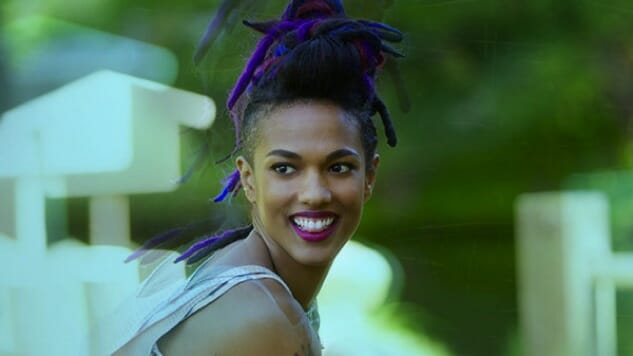How Twitter Blerds are Impacting the Future of TV

In the early days of Twitter, social technology expert Chris Messina came up with the concept of a “hashtag.” His intention was to use the character before the phrase “barcamp” to compile information about online conversations concerning the 2007 BarCamp tech unconference. The benefits of a hashtag took a couple of years to catch on, but once it did, it was a cultural phenomenon that solidified Twitter’s place in the upper echelon of social media giants. Now, Twitter has become—among many other things—the go-to place for disseminating information, fostering unity among marginalized people, encouraging social activism, documenting live events/shows and analyzing TV trends around the world. It’s an online discussion forum for everything that happens in society, from the #BlackLivesMatter movement to the latest celebrity scandals.
Other social media websites are now on the hashtag train, but Twitter continues to be the birthplace for innovative and entertaining trending topics. Twitter hashtags have a profound influence on the marketing approach of every major network and the online communities who use hashtags while viewing a show. The marriage between Twitter and TV is so powerful that Nielsen teamed up with Twitter in 2013 to form a top-10 most tweeted about shows list called “Nielsen Twitter TV Ratings.” With about 316 million active users, Twitter is continuing to swell to gargantuan proportions, forming new communities of people who love various aspects of pop culture. There are many powerful Twitter communities, but the blerds (a portmanteau of “Black” + “nerd”) are one of the most impactful and influential groups on the real-time updating website.
The popularity of “Blerd Twitter” is largely due to the recent inception of several nerd-centered websites for Black people. One of the largest blerd blogs, Black Girl Nerds (BGN), was created by Jamie Broadnax in February of 2012, and has become the premiere space for Black girls to come together and discuss their nerdy passions as well as challenges in a white-male-dominated nerd world. Broadnax, who was affectionately dubbed the “Beyoncé of Twitter” by her followers, is well-known for organizing live-tweet sessions of today’s most popular shows. Along with over 48,000 followers, @BlackGirlNerds not only uses network-created hashtags for shows (#TheWalkingDead, #HTGAWM), they also create memorable hashtags specifically for the blerd community (#DemDeads, #DatMurda). In fact, during Season One of the Shonda Rhimes-produced drama How to Get Away With Murder, the hashtag went viral when Rhimes herself used it in a tweet.
This show is stressful!!! #HTGAWM#DatMurda#nevertellamantokillyou
— shonda rhimes (@shondarhimes) November 21, 2014
Live-tweeting is both a promotional and statistical goldmine. Verified Twitter pages of popular TV shows tweet small breadcrumbs, recaps, and slight spoilers year-round in anticipation of the upcoming season. In return, fans are consistently locked in to their favorite shows. Networks are able to pull stats on hashtags and tweets related to their top programs and get brutally honest insight into what fans think about every aspect of their shows. Fans are also captured months before new shows debut, and Blerd Twitter is often one of the first communities to be ahead of the curve, encouraging live tweets prior to the premiere of a TV show. BGN is especially engaging because the Twitter conversations usually make reference to other big inside jokes on Black Twitter:
This Bonnie story tho #DatMurda#HTGAWMpic.twitter.com/7LrjgaxfJ4
— BlackGirlNerds (@BlackGirlNerds) October 30, 2015
Black nerds on Twitter are an eclectic group, into sci-fi/horror/nerdy shows like Doctor Who, The Walking Dead, American Horror Story and Game of Thrones, and they often view the show through a different lens, compared to a non-POC viewer. Blerd Twitter’s consistent viewership and use of blerd hashtags along with network hashtags have made them a prominent source for constructive critiques about television. Hashtags aside, Blerds will give shows a fair shot, but this community won’t hesitate to call series writers and producers out on important issues, like a lack of diversity and/or lax character development for Black characters on the show.
